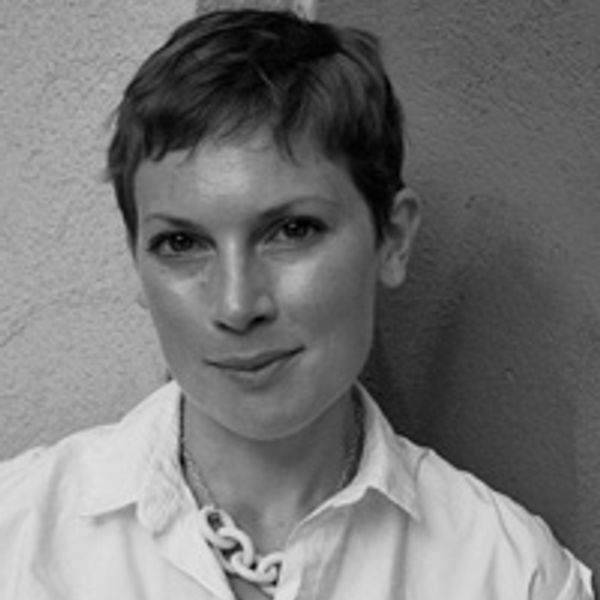Lia Purpura, Decaying Wood (detail), featured in AGNI 102
Pages
I live most days in ritualized chaos, a condition hardly unique to medical residents, though perhaps the profession renders the tumult more starkly. I bike through Jamaica Plain and Mission Hill at 6, sliding between grocery trucks and Green Line trolleys. Every two-hundredth ride or so, I have an accident and fall over the handlebars like a fish to an ice chest. Most days I don’t. I pick out my white coat and stethoscope from the polyester haystack in the corner of a windowless computer room near the top of the hospital. I make my pager available for messages, and immediately the pages start, asking for medicines I hadn’t thought to order, kinds of food and drink I’d previously restricted, nudges to the front of the line for MRIs or CTs.
The least of these pages is instructive: other people are full of desires; they feel the snug, insistent wrap of their bodies as I do; they are extending themselves. I don’t like asking for things, and I assume most people don’t either. But here we necessarily are: quivers of punctuation, exclaiming and asking, glancing into each other. The pager beeps the same for men and women, whether what’s wanted is Tylenol or chest compressions. No one, thank God, is asked to set his or her parcel of need on a scale. I see all my patients before formal rounds; I hear them breathe and I squeeze their ankles for edema. I apologize for my cold hands.
I write when I can, which is more often than I would have believed before starting my medical residency. When someone skips her appointment in my outpatient clinic. When a lecturer is ten minutes late. When I come home at 2 am from the “twilight” shift, too sharpened by the night’s work and the bike-sprint home to sleep right away. While my boyfriend revises his novel; while our dog pushes a plush monkey into my non-dominant hand. I write on my phone, my palms, on duplicate EKGs. I should form a notebook-habit but I’m superstitious of it all drying up, the way weather does for the bearers of umbrellas. Plus I like to be a shade disastrous and iffy, when so much of my day is a clench towards control.
Little wonder that I’ve been drawn to series as a way of repeating the discontinuous, or continuing the unrepeatable. I started the “Imagining Marriage” series in my final year of med school. It was, at first, a chat with Marianne Moore; a way to talk to partners past and present without, you know, talking; and a place to confess and prod some of my more morbid and self-involved identifications (in the first poem: the cosmonauts of Tarkovsky’s Solaris, so deeply in exile from reality that they’re hypnotized by paper strips pinned to a space station airshaft, which rustle like a real backyard—c’mon,_ Laura, ICU shifts aren’t that long…). I went on, talking to the weirder scenes in War and Peace, to my childhood love of frontier tales, talking to my gluttonies, my intoxicants. Why do I continue to need others, and should I feel angry or grateful for this sticky dependence? The order of the poems changes as I find out where the story is going, so all numbers are provisional. When the arc feels wrong, I shuffle. When the arc feels right, I shuffle too, for the goad of discomfort.
Lately I’ve been doing the same in fiction, following a young medical student named Frances who’s more than a little Faustus. Like him, she wants to know everything; like always, the world’s holding out on her. She’s both meaner and more thoughtful than I am in real time. By putting her together sidelong and hopscotch, in unstably-sequential short stories that sift through shards of her larger story, I’ve made something smarter, more rancorous than I know how to do all at once.
Could I ever write a book-length poem, a novel? Maybe I’ll learn to stay put, attend to my breathing, to fix myself in some less slapdash sense of the present and glide calmly from there. I have to say, I’m not seeing it. Right now it feels good to jump and pivot. One of the cliché admonishments among doctors is, “Don’t just do something; stand there.” The idea is that nine times out of ten, the sustained thought is more helpful than the scurry and the panoply of tests. Which is true, for humans healing humans. But when it’s my writing on the table—let’s order all the bloodwork, let’s turn it inside out, let’s tinker piecemeal at all the odd hours of the day and night.
Our emerging dire political moment requires, of course, all of the above: attention and sustenance, the dignity of the long and slow-fleshed thought—but also, yes, speed of response, speed of cry, the scattershot heat of the old stove that warms unevenly—here a spark against glass, there a blue coal rattling unkempt. I don’t know how I, we, will do all this with even mere adequacy, much less grace. There is altogether too much to learn and to do. But I don’t see a way to opt out without abandoning the first principles of poetry and medicine both. Find the pulse. Go where the blood is. Brave the surprise.

Laura Kolbe
Laura Kolbe is a resident physician in internal medicine at Brigham and Women’s Hospital in Boston. Her poems have appeared or are forthcoming in Alaska Quarterly Review, Blackbird, AGNI, Colorado Review, The Yale Review, and elsewhere. Her essays, criticism, and fiction have appeared or are forthcoming in Bookforum, The New Yorker, Vice, The Virginia Quarterly Review, and elsewhere. (updated 10/2016)
